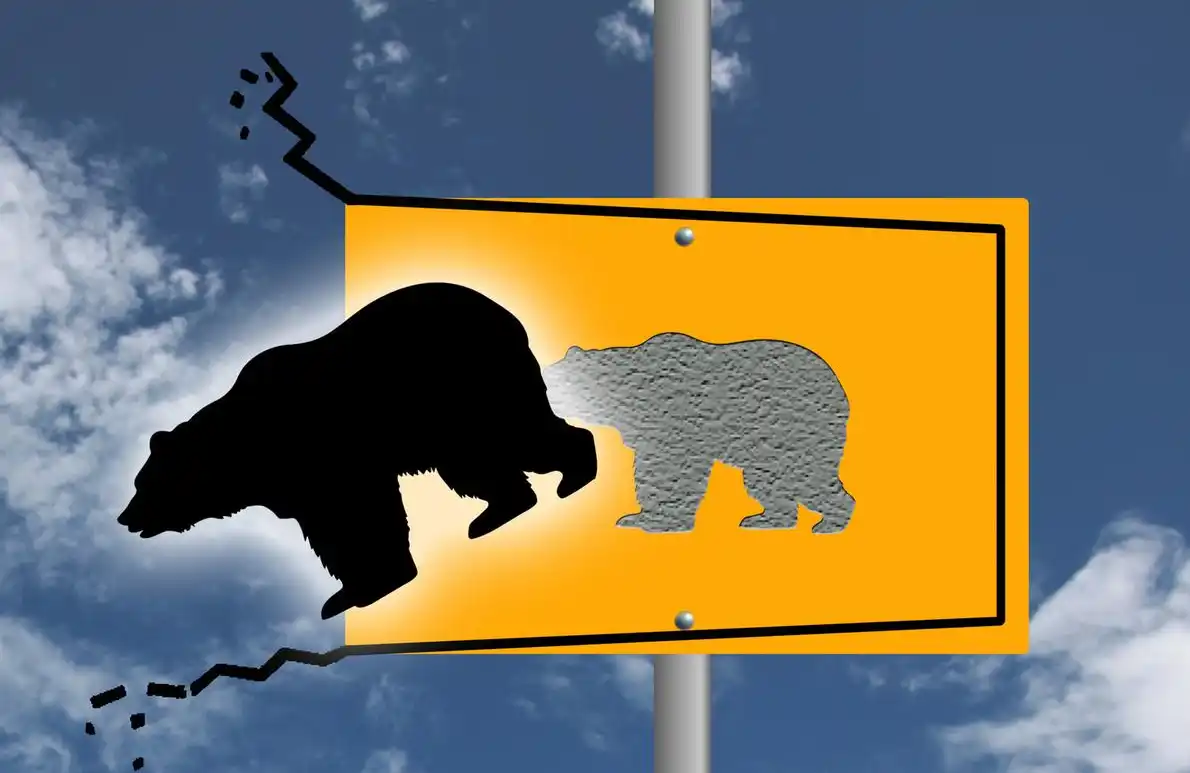In the eyes of macro institutions, is the market in the end?
Original author: Raoul Pal, founder of Global Macro Investor and Real Vision
Original compilation: 0x137
Raoul Pal is the founder of Global Macro Investor and Real Vision, a global macro-finance research institution, and one of the most well-known KOLs in the current encryption field. This article is based on Raoul Pal’s views on his personal social media platform, and BlockBeats’ translation is as follows:
A lot of people on twitter think tech stocks are dead right now, but the reality is that the nasdaq is back in trend with its 150 week moving average superior.

In other words, the Nasdaq is currently at the bottom of the logarithmic regression channel, which is actually very "cheap", but more downside can also be seen in the peak.

Valuations are back to average.

However, large-scale long-term earnings recessions can also cause large deviations from the long-term trend of the stock market, such as in 2001 and 2008.

So the real question is, are we going to have a longer-lasting recession that crushes earnings? A recession due to overly tight monetary policy appears to be evident, and the chart below from Bittel Julien shows rates of change for interest rates, commodities, and the U.S. dollar.

What this chart shows is that we are at risk of a very sharp contraction in growth due to a demand shock as higher commodity prices and higher borrowing costs kill demand.
The chart below also implies the same risk.

And this one.

The Nasdaq has Price In a mild recession scenario, but I believe there is still a lot of room to Price In...

My base case analogy is 1974, when growth collapsed due to high oil prices and high interest rates, the ISM index fell from 56 to 30 in 4 months, the fastest in history one of the declines. But as the Fed cut rates, recessions were quickly over, even though CPI and oil prices were still rising.

2018 is another good analogy: financial conditions were extremely strained, growth collapsed, and the Fed eventually pivoted. But there was one last sharp sell-off in stocks before the economy turned around.

It was different in 2001, as gains were eventually killed as the recession dragged on for too long. The length of the recession could change the forecast above and cause the market to fall further, or it could be that junk stocks rebound from here, forcing the Fed to keep raising rates and leading to the same outcome.

But because market valuations are not extreme right now, the second scenario is less likely, and the potential use of the Fed's balance sheet further reduces the possibility. But it's not impossible, and the market is ready for it, and you'll find every VC agency with a lifespan of 40+ years issuing warnings that are remarkably similar to those of 2001, because it's their "spirit trauma".

I believe that the current yield has peaked or is in the process of peaking, and the chart below also helps to clarify this situation. Many of my buddies believe that inflation will be long term and that this will lead to trouble for the Fed as well, even a 2001-style outcome, and while I can understand that view, I don't think that's going to happen.... ..

Another good chart is the year-over-year change in commodity prices. A mistake that many people often make is to only focus on the price level, but the persistently high price level also makes them ignore the actual situation of the year-on-year decline. I think commodity prices will also fall to some extent, which will reduce the CPI index significantly.

But commodity supply problems are real, so when demand recovers, prices will rise accordingly, but the likelihood of maintaining year-on-year growth is low. We saw something similar between 2001 and 2008, when a demand shock in China led to an explosion in commodity prices of up to 215%.

This is also due to chronic underinvestment in commodity markets, but it is worth noting that inflation has only risen by an average of 2.4%. Of course, globalization, demographics and technology were also factors, and the dollar was weak at the time.

Summary:
Our economy faces a high risk of a sharp recession, but that recession will end soon. Of course, this is not a certainty, only that the probability of a prolonged recession is low. But in any case, inflation is a thing of the past.
However, if there is no further decline in the stock market (which is very likely), we will have to evaluate the frame in real time, because then there may be a false rebound and a more hawkish fed.
While everything is not yet clear, I think the stock market is near its lows (either now or in the next few weeks). And even if commodity prices are up, year-on-year growth is almost impossible, and I think they'll continue to fall for a while, like they did in 2001.

This analysis logic is also applicable to the encryption market that is constrained by the macro situation.
Any further dips are good buying opportunities for me...opportunities like this don't come often and they can really change your Life. The 60-month exponential moving average is currently at $22,500, which would be a nice buying zone.

The only thing that can change all this is that inflation continues to rise at a high level. I've tried hard to rate the possibility, but the probability is really, really small. Of course, another simple operation with less risk and less volatility is to buy bonds. Finally, good luck!
Welcome to join the official BlockBeats community:
Telegram Subscription Group: https://t.me/theblockbeats
Telegram Discussion Group: https://t.me/BlockBeats_App
Official Twitter Account: https://twitter.com/BlockBeatsAsia


 Forum
Forum Finance
Finance
 Specials
Specials
 On-chain Eco
On-chain Eco
 Entry
Entry
 Podcasts
Podcasts
 Activities
Activities
 OPRR
OPRR








